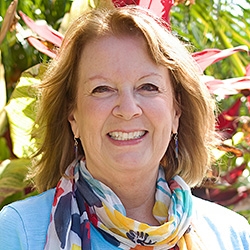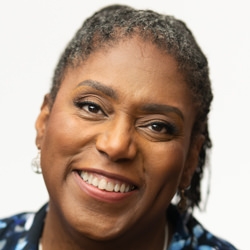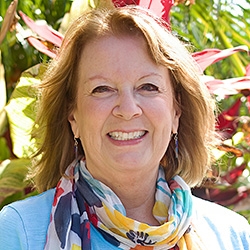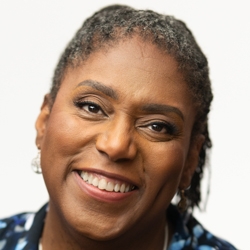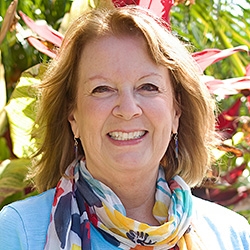

Search Results: differences
-
Yoram Mosenzon shares an exercise and demo to explore the process of identifying observations and using judgements (jackals) to find the needs.
-
Trainer Tip: Commit to doing one thing right now that will bring you closer to meeting a need today. Do it today. Don’t put it off. This is your life.
-
Because we affect one another it can be hard to know where to take responsibility and where to leave it with the other person. This means we need self empathy, and presence for another's struggles without compulsion to "make them happy" or bring them healthy change. You can then attend to the needs and to your choice about if and how you want to contribute with compassion. Respect them as autonomously in charge of their unique process of change. With this, you honor your life and theirs. And where, what, and how you will invest your precious life energy.
-
Recalling Krishnamurti, Marshall referred to the capability of distinguishing observation vs observation mixed with evaluation as "the highest form of human intelligence." Read on for an exercise to help practice the skill of observation in combination with mindful walking.
-
Roxy Manning discusses the distinction between group purpose and group agreements. Group purpose is identified as the reason for gathering, such as learning to facilitate groups with a focus on inclusion and contribution. Group agreements are the policies or intentions to support the purpose, like creating space for all voices or forming affinity groups to address identity-specific challenges. The emphasis is on how agreements facilitate the manifestation of the group's purpose.
-
Open your heart across differences with humility and courage as you explore new perspectives.
-
- Learn how to transform NVC into a tool for systemic awareness and healing
- Examine the influence of difference, and uncover pathways that strengthen its capacity
- Learn to receive and offer feedback on impact in situations fraught with power differences
- Explore specific ways in which NVC systemically supports the full flowering of humanity
- Delve into the dynamics of cultural differences, and discover how NVC can systemically contribute to a liberation perspective
-
Trainer Tip: Our differences are not in our needs, but in how we attempt to meet them. This simple truth can help you lessen the conflicts in your life and your judgments of other people. Rather than focus on where you disagree, focus on where you are the same. This shift can make a profound difference in your ability to understand yourself and other people, and to bring unity to your life.
-
For many people, attempting to connect with others across differences can feel akin to walking through a minefield. In this course recording Roxy explores a variety of concepts and practices that can help you navigate situations that might be confusing, challenging, or even shocking. And she'll be delving into key differentiations, such as equity and equality. This recording will offer a renewed sense of clarity around a number of theories that may help explain specifically why the areas of power, advantage, and rank tend to be so difficult to work with.
-
Jeff shows us how to emply NVC to supercharge the possibility of transformation between two people in a mediation process.
-
Bring NVC beyond personal growth, explore perspectives that transform how we respond to crisis.
-
Trainer Tip: We all have the same needs, but may prioritize different needs at different times -- and that order of prioritization may look different from other people's perspectives. If your prioritization of needs isn't the same as another's, that doesn't mean there's something wrong with you nor them. We can look for many ways to meet our prioritized needs.
-
- Learn how every decision we make perpetuates the status quo or brings us closer to the vision of a world that works for all
- Find out about our big brain capacity to integrate needs, impacts, and resources to make decisions that work for everyone
- Understand why power differences interfere with collaborative decisions and what can be done about it
- Discover tools that support collaboration in larger groups and organizations— even across power differences!
-
In learning how to re-invent the economic system so that it distributes resources in a way that includes as many people's needs as possible, we would need to be in a process of mutual influence with one another. However, addressing resource distribution can be complex when people in different social locations have 1.)a different sense of what's considered "enough" 2.) different capacities to find creative strategies that work within the given limitations, and 3.)different levels of self-doubt, shame and capacity to put their concerns and needs on the table. Can we collectively create conditions that support people to stretch productively so that included in the outcome are the needs, perspectives, ideas, and concerns of people who are less powerful? What needs to be in place to support the way towards a better future?
-
- Learn the essentials of NVC from its founder, Dr. Marshall Rosenberg
- Discover how to connect with others with empathy, integrity, and peace
- Understand the origins of NVC and how to apply it within yourself and in your life
- Experience how empathy supports healing in your most intimate relationships— and in the world at large!
-
To tell the difference between empathy and investigation, watch for distinctions along four different dimensions: energy, subject, intention and trust. These distinctions can help us engage awareness and skill to meet your needs and respond to others’ needs in more direct ways. The more you meet your needs in conscious and direct ways, the more present you can be for others. Read on for more about how to do this.
-
What's the real reason you choose to talk about something or not? "Privacy" can become a misplaced label that's used to hide harmful behaviour. Secrets typically come from reactivity -- and can carry shame, fear or threat of harm, and take a toll. And yet, if something private gets mislabeled as a "secret" it can also trigger shame and fear. The key to all this may be in relating to privacy from a place of clear differentiation, boundaries, agency, care and discernment.
-
It seems to me that people see ideas which are different from theirs as threatening. Instead of listening, the group polarizes around the different ideas and a lot of judgments develop, conflicts develop and people feel hurt. Forward progress becomes a battle ground. How can I support more collaboration?
-
Gain practical skills to navigate organizational differences and foster collaboration.
-
Strengthen team collaboration by building relationships and navigating shared challenges.

Quick Links
Subscription Preferences
Stay In Touch!
Looking for ways to keep up with NVC Academy news, get special offers, free resources, or words of inspiration? Here are five ways to stay engaged:


